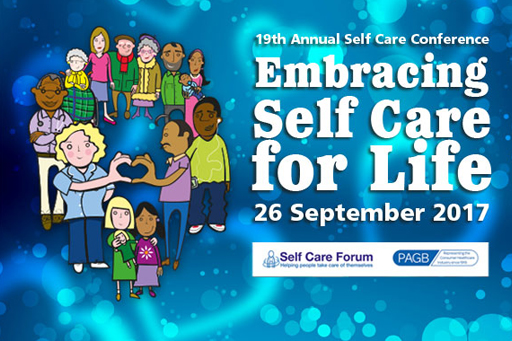In-depth

Embracing self care for life
In In-depth
Bookmark
Record learning outcomes
The 19th annual Self Care Conference focused on how to engage and empower people to embrace self care and considered community pharmacy’s role in this, as well as what more needs to be done

Joining up self care
 The Self Care Forum (SCF) has teamed up with Imperial College London and the International Self Care Foundation to set up the Self Care Academic Research Unit (SCARU), which SCF co-chair Pete Smith has deemed “the last part of the jigsawâ€.
The Self Care Forum (SCF) has teamed up with Imperial College London and the International Self Care Foundation to set up the Self Care Academic Research Unit (SCARU), which SCF co-chair Pete Smith has deemed “the last part of the jigsawâ€.
Formed in response to the lack of a validated framework to objectively evaluate self care interventions and pilots, the research unit will strive to make an absolute case for self care in order to inform policy makers via an extensive portfolio of research activity over the coming months and years.
Referring to the SCARU’s origins, Dr Austen El-Osta from Imperial College London said: “We were keen to understand self care and its potential to reduce pressure on NHS resources, as well as support self care in an international setting and with an academic basis.â€
Self care in community pharmacy
 What can pharmacies do to better promote and implement self care? This was the question posed to conference delegates by Ade Williams, superintendent pharmacist at Bedminster Pharmacy in Bristol, during a roundtable discussion.
What can pharmacies do to better promote and implement self care? This was the question posed to conference delegates by Ade Williams, superintendent pharmacist at Bedminster Pharmacy in Bristol, during a roundtable discussion.
While many successful examples of self care interventions by community pharmacies were shared – including Ask Your Pharmacist events, talks about pharmacy services in local communities and simply passing on self care advice to customers who were collecting prescriptions – there were still obvious places for improvement.
The three main areas highlighted were the need for a nationally commissioned minor ailments service to support self care; increased collaboration, particularly with GPs to help manage overstretched workloads and make access to advice and OTC products easier; and most notably, better communication to GPs and patients.
Mr Williams commented: “In spite of the efforts made so far to raise pharmacy’s public profile, much more still needs doing nationally, particularly on social media platforms to deliver clear and consistent messages. Telling the story of what we do and how well we do it is key.â€
Focus on LTCs
 Professor Alf Collins, clinical director for personalised care at NHS England, highlighted that multi-morbidity is the norm, with 50 per cent of the population now living with one or more long-term conditions (LTCs).
Professor Alf Collins, clinical director for personalised care at NHS England, highlighted that multi-morbidity is the norm, with 50 per cent of the population now living with one or more long-term conditions (LTCs).
“Some 40 per cent of people with LTCs have low or no confidence to manage their health and wellbeing. That is a national disgrace,†he said. Professor Collins went on to say that in the majority of cases, the impact of their condition is the main concern of the patient and so it’s important to “shine a light on LTCs and help people understand them in their terms.â€
Professor Collins highlighted the need to stop using the biomedical model of health, which solely focuses on physical and biological aspects of disease and illness, and instead “use a personand community-centred approach and make use of community assets†based on what matters to the patient.
In brief
- The term self care has made it into the Oxford Dictionaries. Cementing itself in the common vernacular, self care is defi ned as: the practice of taking action to preserve or improve one’s own health
- This year’s Self Care Week will run from 13-19 November. See Self Care Week is back for more details.
